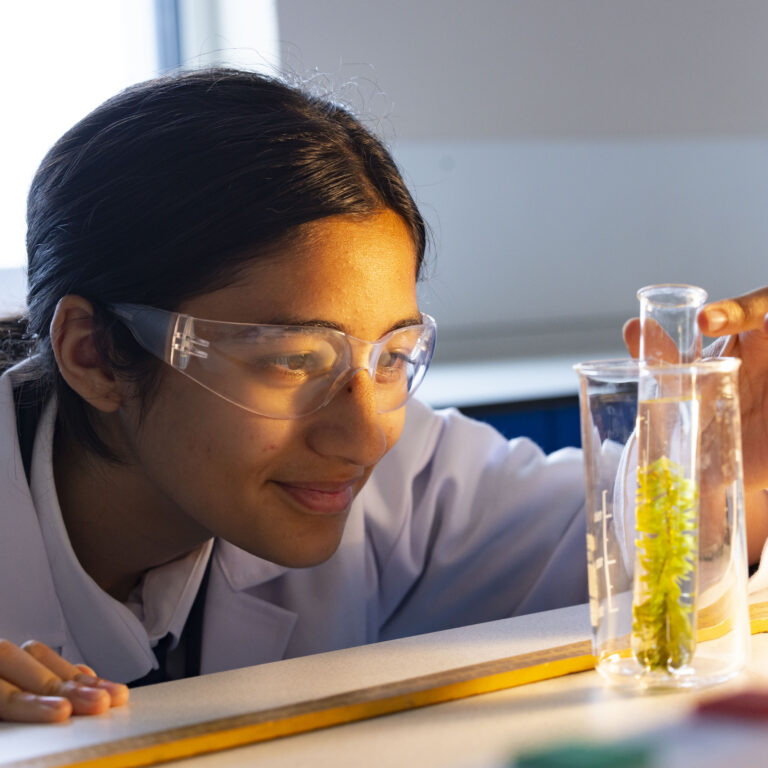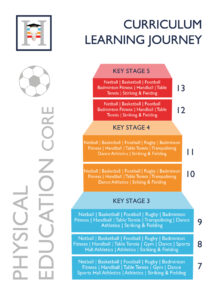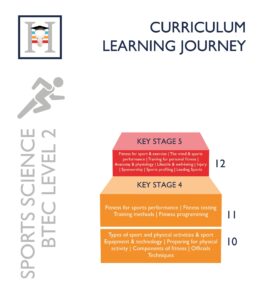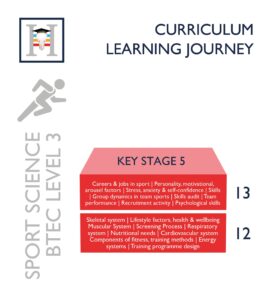Hours taught per week – 2
All students in Year 9, 10 and 11 MUST follow a course in Physical Education in line with National Curriculum Statutory requirements.
All students in Years 9 , 10 and 11 follow a course of study that will improve the basic skills and techniques covered in the Key Stage 3 curriculum. Each student will have a total of two lessons of core curriculum PE each week and is required to study major sports from games, gymnastics (including trampolining) and athletics (including fitness / weight training).
During Key Stage 4, students tackle complex and demanding activities and apply their knowledge of skills, techniques and effective performance. They will be involved in physical activity that enables them to focus on competitions, promotion of health and wellbeing, and developing personal fitness levels. They will take on the role of performer, coach and official.
Within games, pupils will be taught to play competitive games using advanced techniques and skills specific to the game played and respond effectively to changing situations within the game.
In gymnastic activities (including trampolining), pupils will be taught to compose and perform sequences applying set criteria. They will be encouraged to use advanced techniques and skills with precision and accuracy in completing sequences.
All students will gain a knowledge and understanding of fitness and health. They will be taught how preparation, training and fitness relate to and affect performance. They will also be shown how to design and carry out training programmes that have specific purposes, and the importance of exercise to personal, social and mental health and wellbeing. In addition, all students will monitor and develop their own training programmes to be used in school and when exercising outside of school.
Students will only be excused from lessons with a Doctor’s / Hospital Medical Exemption Certificate. This is a compulsory lesson that must be attended by all students to adhere to the government requirements of Physical Education.
Students are not assessed for Core P.E.




